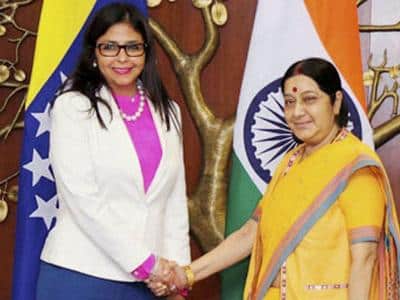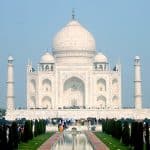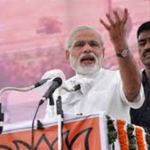In News
- PM Modi is unlikely to attend the NAM summit to be held in Margarita Island, Venezuela on 17-18 September, 2016.
- If it happens, it will be the first time that an Indian PM will be absent since the 1979 summit in Havana.(Havana is the capital city of Cuba).
Reason
- The move is part of the Government’s efforts to bring about a change in India’s foreign policy.
- Unlike his predecessors, Mr. Modi has not referenced Non-Alignment as a “core principle” of Indian foreign policy in his public addresses, speaking of NAM only once as ” India’s Heritage”. His public pronouncements suggest a move away from the legacy of non-alignment built by Jawaharlal Nehru.
- In 2015, when he was invited to the 60th Anniversary of the Bandung Conference, which had founded the NAM, he deputed Ms. Swaraj to attend it.
- Venezuela is facing its worst economic crisis at present, with a negative growth rate (-8 percent) and an inflation rate touching 500 percent. Given the economic, social crisis and daily protests, this would be the worst possible time for him to attend the NAM summit.
- Foreign Secretary S. Jaishankar hinted that the government’s policy is veering away from multilateral bodies like NAM. He said, ” blocs and alliances are less relevant today and the world is moving towards a loosely arranged order”.
- He also said that India under Modi was indeed shifting is strategy from a ‘balancing power’ to one of a ‘leading power’.
Implication
- If Mr. Modi skips the NAM summit, it would send out the wrong signal as the USA has imposed strict sanctions on Venezuela and indicating India’s growing closeness with the US.
- It is evident that under the Modi regime, the US has become India’s most significant strategic partner.
- To downgrade India’s engagement with NAM would also indicate New Delhi’s effort to delineate itself from a platform that is seen as anti-US.
- In 2012, Dr. Manmohan Singh had traveled to Iran, despite pressure from the USA to minimize contact with the country that had major sanctions imposed on it.
About NAM
- There are 120 member countries of the bloc.
- NAM plays a fundamental role in preserving world peace.
- It was founded in 1961, amid the collapse of the colonial system and the liberation struggles of Africa, Asia, Latin America and other regions worldwide.
- It was formed during the Cold War, largely on the initiative of then – Yugoslav President Josip Broz Tito, as an Organization of States that did not seek to formally align themselves either with the USA or the Soviet Union, but sought to remain independent or neutral.
- India was one of its founding members.
- It is a body of developing nations keen to steer clear of alliances with either of the two Cold War rivals: the US and the Soviet Union.
- The grouping was proposed in 1955 during discussions that took place at the Asia-Africa Bandung Conference held in Indonesia (capital- Jakarta)
- The First NAM Summit Conference was held in Belgrade, Yugoslavia in 1961 under the leadership of Josip Broz Tito of Yugoslavia, Gamal Abdel Nasser of Egypt, Jawaharlal Nehru of India, Kwame Nkrumah of Ghana, and Sukarno of Indonesia.
- It has no formal Constitution or a permanent Secretariat.
- All the members have equal weight.
- The movement’s positions are reached by consensus in the Summit Conference of Heads of State or Government, which by convention, convenes every three years.
- The administration of the organization is the responsibility of the country holding the chair, a position that rotates at every summit.
- The 17th Summit will be held this year in Venezuela (capital- Caracas).
- One of the challenges of the NAM in the 21st century has been to reassess its identity and purpose in the post-Cold War era.
- The movement has continued to advocate for international cooperation, multilateralism, and national self-determination, but it has also been increasingly vocal against the inequities of the world economic order.
Criteria for Membership
- The country should have adopted an independent policy based on the coexistence of States with different political and social systems and on non-alignment or should be showing a trend in favor of such a policy.
- The country concerned should be consistently supporting the Movements for national independence.
- It should not be a member of a multilateral military alliance concluded in the context of Great Power conflicts.
- If a country has a bilateral military agreement with a Great Power, or is a member of a regional defense pact, the agreement or pact should not be one deliberately concluded in the context of Great Power conflicts.
- If it has conceded military bases to a Foreign Power, the concession should not have been made in the context of Great Power conflicts.
- The stated aim of of the NAM is to give a voice to developing countries and to encourage their concerted action in world affairs.
Ten Bandung Principles
These principles were proclaimed at the Bandung Conference and were later made the main goals and objectives of the policy of non-alignment.
- Respect for fundamental human rights and for the purposes and principles of the charter of the United Nations
- Respect for the sovereignty and territorial integrity of all nations.
- Recognition of the equality of all races and of the equality of all nations large and small.
- Abstention from intervention or interference in the internal affairs of another country.
- Respect for the right of each nation to defend itself, singly or collectively, in conformity with the charter of the United Nations.
- Abstention from the use of arrangements of collective defence to serve any particular interest of the big powers; abstention by any country from exerting pressures on other countries.
- Refraining from acts or threats of aggression or the use of force against the territorial integrity or political independence of any country.
- Settlement of all international disputes by peaceful means, such as negotiation, conciliation, arbitration or judicial settlements well as other peaceful means of the party’s own choice, in conformity with the charter of the United Nations.
- Promotion of mutual interests and cooperation.
- Respect for justice and international obligations.











